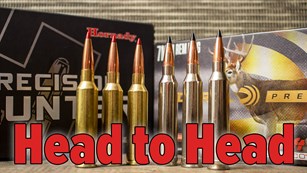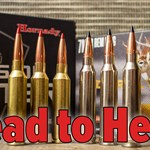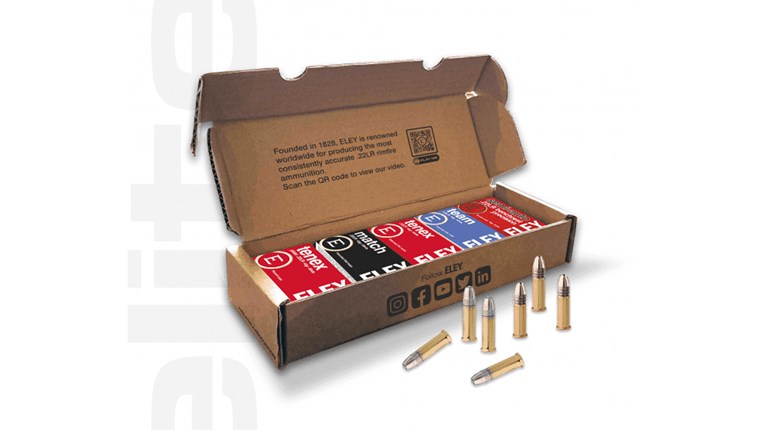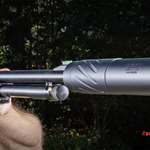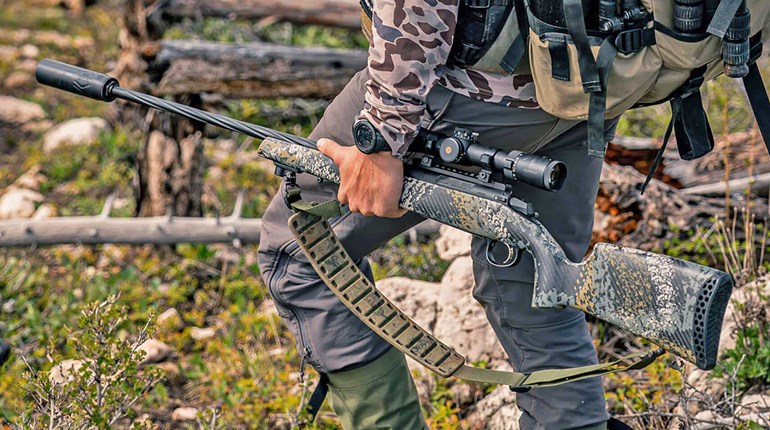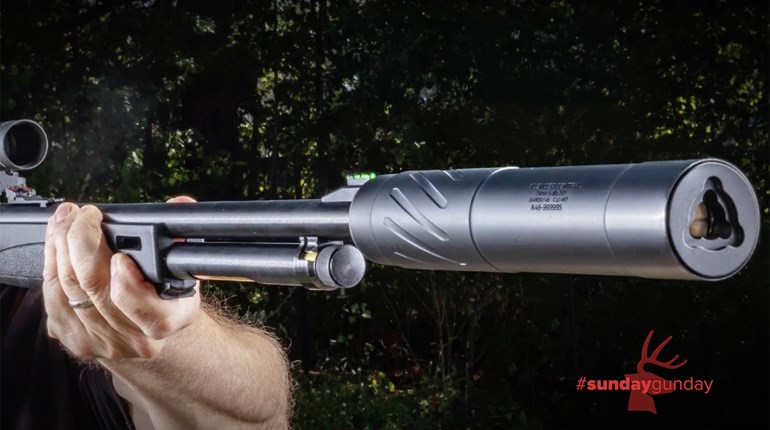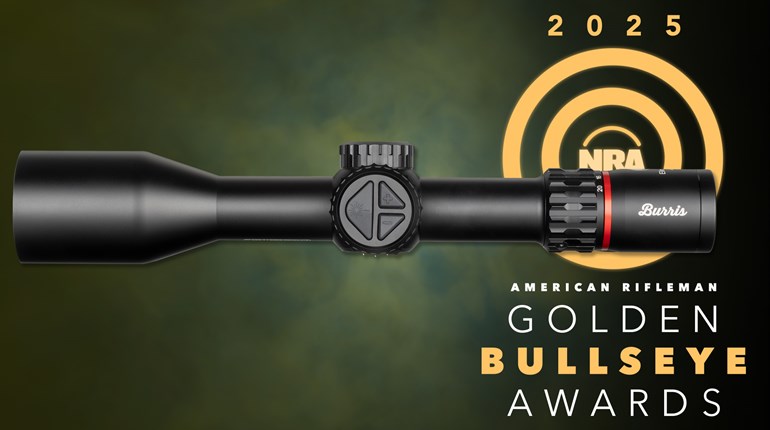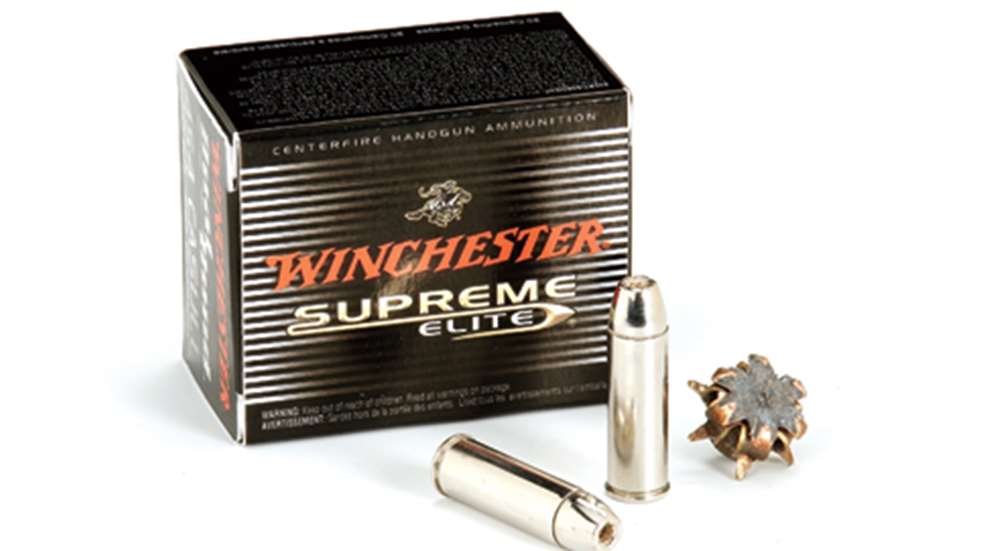
I began hunting with handguns more than 25 years ago and have lost count of how many big-game animals I've taken with them. When it comes to big-bore, straight-walled cartridges for big game, I have come to prefer a jacketed, expanding bullet. One reason for this is that jacketed bullet technology has come such a long way in the last decade.
On the forefront of advanced bullet technology and design is Winchester, which provides a number of great bullets for handgunners. Its latest achievement is a dual-jacketed, dual-bonded bullet called the Supreme Elite Dual Bond. The unique design consists of an inner jacket chemically bonded to an inner lead core and an outer jacket mechanically bonded, or crimped, to the inner jacket. It is designed to open at a controlled rate into 12 segments or petals, six on each jacket, with expansion of up to twice the original bullet diameter while retaining most of its weight for a combination of knockdown power, solid penetration and significant tissue damage.
Over the years, one thing I've come to expect from Winchester factory loadings is top-notch accuracy. I've had excellent success in the field with the company's Casull loads; the new 260-grain Dual Bond may be the most accurate one yet, at least from my guns. To test what the load is capable of, I bench-rested my 10-inch Freedom Arms .454 Casull topped with a Leupold 2.5X-8X EER handgun scope. At 50 yards I was able to deliver a sub-1-inch average group size. At 100 yards, the groups opened up to a predictable 2 inches, with my best measuring a scant 1.7 inches.
My gun delivered a higher muzzle velocity (an extra 100 fps) than is listed on the Winchester box, but that's not too surprising considering its 10-inch barrel. Curious about the new design, I spoke with Winchester product manager Glen Weeks regarding the downrange impact velocities. Weeks said that in order for the .45-caliber bullet to expand properly the impact velocity needs to stay above 1400 fps. As you can see from the accompanying chart, it retains that velocity from my 10-inch gun out to nearly 150 yards, although I suggest keeping shots at large game to around 75 yards maximum.
Most handgun hunters will end up using this bullet on game under 250 pounds, but I wanted to try it on something a good deal larger-elk. Well, where can you hunt elk in July? Where else, Texas! A call to the DB Hunting Ranch in Bertram booked my hunt and a few days later I was stalking elk through the mesquite and cedar thickets. After a few hours of spot-and-stalk, and a couple of failed ambushes, I finally got a shot at a bull from about 60 yards with my open-sighted, 43/4-inch .454. He stood at a quartering angle and from the time I shot until the bull was down was just under 13 seconds.
The bullet penetrated the shoulder blade about 4 inches down from the top, took out two ribs and lodged next to the stomach on the off-side of the body cavity. Penetration on the elk was approximately 28 inches and included some very significant damage to the soft tissue and bones. The recovered bullet exhibited retention of nearly 90 percent of the original 260 grains, and it did expand to double the original diameter. The reason for the slight loss in weight is because three of the inner petals ripped off, most likely from contacting the shoulder and rib bones while still at a high velocity. Based on my observations on the elk, this bullet may be a little light for anything larger because of its expansion characteristics unless you limit your shots to broadside encounters and try to avoid heavy shoulder bones in the largest animals. I'm certain this bullet will fully penetrate deer and other medium game from all but very oblique angles, and will likely fully penetrate larger game on broadside shots with proper bullet placement at reasonable distances. Handgunners heading to the woods this fall can have confidence that the new Dual Bond will fly true and hit hard.
Bullet Type: dual copper-jacketed, lead core, hollow point
Features: 12-segment, bullet-within-a-bullet design
B.C: .176 (.45 cal.)
Calibers/Weights Available: .454 Casull (260-gr.), .460 S&W (260-gr.), .500 S&W (375-gr.)
MSRP per box of 20: $45-$65








